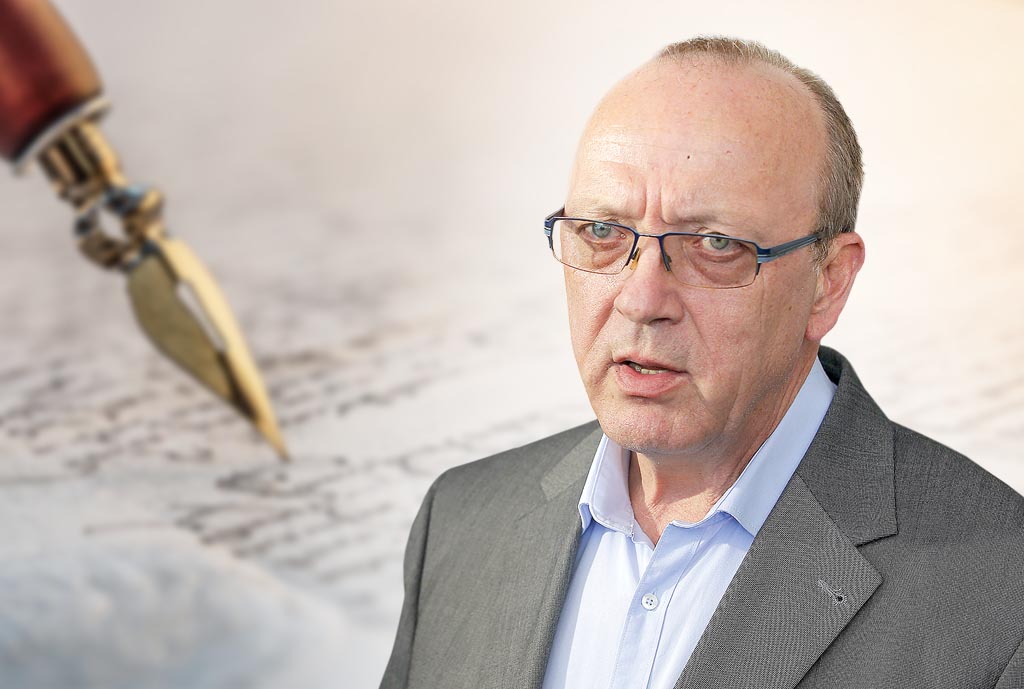By: Dr Vinko Gorenak
At the end of November, specifically on November 27th, 2022, a triple referendum took place in Slovenia, which Golob’s coalition easily won, partly due to the post-election effect after their victory in the National Assembly elections, and partly due to substantial support from left-leaning media. At the same time (November 28th, 2022–December 10th, 2022), the police, in collaboration with SOVA (Slovenian Intelligence and Security Agency), had to arrest Russian spies Artyom Dulcev and Anna Dulceva in Ljubljana. However, the arrest of the spies could have overshadowed the coalition’s celebration of their triple referendum win.
The authorities could have conducted the arrest as early as November 28th, 2022, but they delayed it until December 5th, 2022. This allowed the coalition to celebrate. At the time, it was officially stated that the arrest date was determined by the head of our intelligence agency, Joško Kadivnik. However, just a few months later, former Interior Minister Tatjana Bobnar and former police chief Boštjan Lindav contradicted this, stating that the date change was requested by the head of the coalition himself, although Golob immediately denied this and claimed he would explain everything before the National Assembly’s commission. To this day, he has not done so, and until then, I personally believe Bobnar and Lindav.
It should also be mentioned that the arrest was not some prestigious achievement of our intelligence agency but rather came after being tipped off by one of the foreign intelligence services. Officially, it is stated that the arrest was carried out based on data exchange between intelligence agencies.
But that is not all; on August 1st, 2024, the Russian spies left Slovenia and travelled home via Turkey. They were part of an international spy exchange. A few days later, they spoke to the media in Russia about their detention in Slovenia. Meanwhile, the coalition boasted loudly about how significant Slovenia’s action was, how Slovenia is bridging the gap between the USA and Russia, how important Slovenia is as an international actor, that even the U.S. president thanked them, and many other self-praising absurdities that even a child would not believe.
If our politicians in the coalition loudly boast and glorify their alleged successes that are not really successes, if they praise the power and significance of our country in international relations, that is not so bad; let those who want to believe them do so. However, more critical observers of the political situation are obliged to point out the opposing facts. In this regard, the interview of the two Russian spies with the Russian media reveals much and more. Their statements can even make us concerned. Let’s consider just a few points.
The Russian spies stated that a member of the Russian intelligence service visited them during their detention in Slovenia. Naturally, the question immediately arises: how is it possible that Russian intelligence officers can legally stroll through Slovenian prisons? Who allowed them to do so? Was it the prison administration? Typically, that should be the case, but it is unlikely they would have done so without the knowledge of the police and our intelligence service. Of course, we will never get an answer to this question.
It is evident that there was intensive communication between the Russian intelligence officers and the spies since the latter allegedly confessed guilt a day or two before the exchange. Who monitored these conversations between the detainees and the Russian intelligence officers, and how they responded, we probably will never know either.
According to their statements, the detained spies apparently communicated intensively with employees of our intelligence service, as their words practically convey gratitude to our intelligence officers and the state for caring for their children, especially for ensuring that their children were not taken away from them. Just think about what would happen if the father and mother of two of our citizens were detained. Who would care for their children? The answer is entirely clear: the social service would send them to foster care. In the case of the detained Russian spies, this was not the case; they even had contact with them. So, who allowed communication with the children? The Russian spies say it was our intelligence service, but by law, this should not be the case; such communication could only be approved by the prison administration or the court.
Finally, there are some key questions related to the judiciary, the court that tried the spies, and the judge who presided. The judge delivered the verdict based on the spies’ confession during the judicial recess when the courts are typically not in session. Why was it necessary to do this precisely on July 31st, 2024, and the next day, they were officially expelled? How is it possible that the judge delivered a sentence that ended exactly on August 1st, 2024, when they were allowed to leave Slovenia? Does it not seem like a coordinated effort between our intelligence service, the police, and the judiciary? It seems that way to me. In other words, the independent executive branch dictated to the independent judiciary exactly what sentence the spies should receive.
No wonder, then, that the Russian spies called the whole affair a “theatre”. To be continued.

